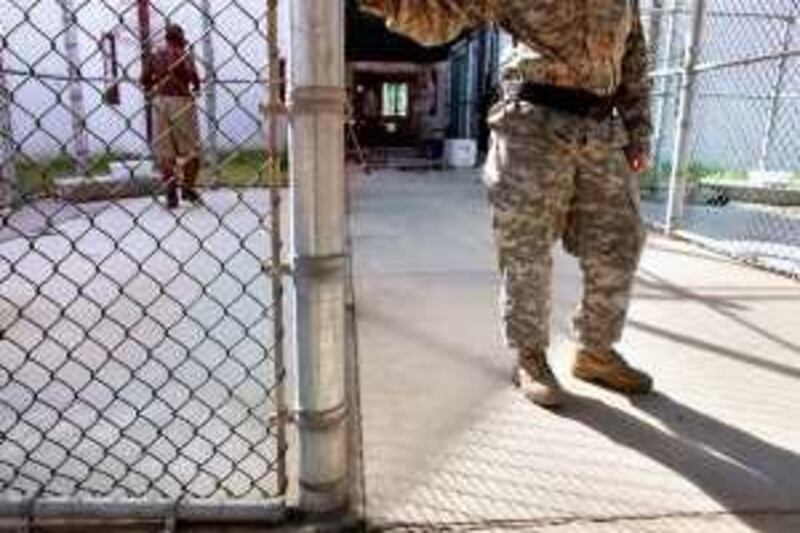WASHINGTON // A court hearing in San Francisco tomorrow could be the first test of whether Barack Obama will end the culture of secrecy that developed around the controversial counterterrorism policies of the Bush administration. A three-judge panel is scheduled to hear arguments in a case filed on behalf of an Ethiopian man, Binyam Mohamed, and four other detainees, alleging that a US company was hired by the government to arrange for the men to be sent to prisons in other countries, where they say they were tortured. The company, Jeppesen Dataplan Inc, is a subsidiary of Boeing, the aerospace giant.
The case was filed by the American Civil Liberties Union (ACLU) in May 2007, but the proceedings were blocked when the Bush administration invoked a "state secrets privilege", claiming evidence in the case threatened national security. In its appeal tomorrow, the ACLU is expected to argue that the Bush administration chronically misused that privilege to thwart any case involving its most disputable practices.
Now Mr Obama and his attorney general, Eric Holder - both of whom have condemned the previous administration's counterterrorism policies - will have to decide whether they will dramatically shift course from the Bush era and allow the appeal to proceed. "It's a very important test of whether the rhetorical condemnation of torture and commitment to transparency will be translated into action," said Ben Wizner, the ACLU lawyer representing the detainees. "All we want is our day in court."
Mr Mohamed, a legal resident of Britain, was detained in Pakistan in 2002 after a visit to Afghanistan, where he said he went to get off drugs. The United States, however, claimed he had been training with al Qa'eda and transported him to a Moroccan prison, where he was held for 18 months. Mr Mohamed claims he was tortured there. In 2004, he was transferred to a prison in Afghanistan, where he also claims to have been tortured. Later that year he was moved to the US military prison at Guantanamo Bay, Cuba, where he remains, on a hunger strike.
The lawsuit alleges that Jeppesen provided the logistics for transporting Mr Mohamed and the four other detainees, knowing that they would be tortured. A former employee of the company has come forward alleging that a senior Jeppesen official referred to arranging "torture flights". Mr Obama signed an executive order on his second day in office outlawing harsh interrogation tactics and establishing a task force to investigate US renditions. But some say the new president has left many questions unanswered about the extent and speed with which he will reverse Mr Bush's policies.
Anthony Romero, the executive director of the ACLU, said he is "increasingly concerned" about how much change will come under Mr Obama. He pointed to the official US response to a decision by two British judges last week to withhold from the public intelligence documents that detailed Mr Mohamed's treatment while in US custody. The release of the documents was being sought in a separate lawsuit in Britain. The judges said they withheld the information reluctantly, but did so out of concern that Washington would make good on a "threat" to cut off intelligence sharing.
A statement from the US state department praised the court and the British government "for its continued commitment to protect sensitive national security information". Mr Romero said such statements sounded similar to tones struck by the US government under the previous president. "That statement ? did not sound like change; in fact, it sounded like more of the same," Mr Romero said in a conference call with reporters. "If the Obama administration so early on is toeing the Bush party line on questions of national security and state secrets, that speaks volumes for where we might end up several years from now."
A justice department spokesman, Charles Miller, declined to comment on the case or whether the government lawyer involved would ask for an extension to formulate a more concrete policy. Mr Obama has already directed military prosecutors to seek a 120-day suspension of all military commissions at Guantanamo Bay. Mr Romero said if the lawyer fails to shift course from previous policy, then "silence will speak louder than words on these issues". "The baton has been passed," Mr Romero added. "The runner must run in the same direction or change course." sstanek@thenational.ae






